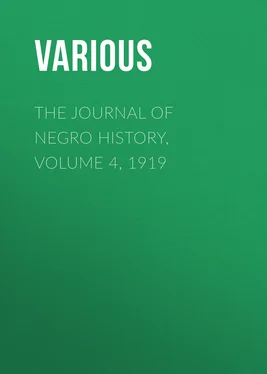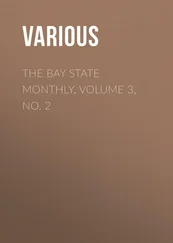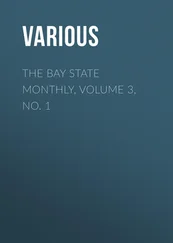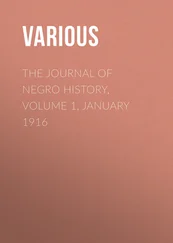Various - The Journal of Negro History, Volume 4, 1919
Здесь есть возможность читать онлайн «Various - The Journal of Negro History, Volume 4, 1919» — ознакомительный отрывок электронной книги совершенно бесплатно, а после прочтения отрывка купить полную версию. В некоторых случаях можно слушать аудио, скачать через торрент в формате fb2 и присутствует краткое содержание. Жанр: foreign_antique, periodic, История, foreign_edu, на английском языке. Описание произведения, (предисловие) а так же отзывы посетителей доступны на портале библиотеки ЛибКат.
- Название:The Journal of Negro History, Volume 4, 1919
- Автор:
- Жанр:
- Год:неизвестен
- ISBN:нет данных
- Рейтинг книги:5 / 5. Голосов: 1
-
Избранное:Добавить в избранное
- Отзывы:
-
Ваша оценка:
- 100
- 1
- 2
- 3
- 4
- 5
The Journal of Negro History, Volume 4, 1919: краткое содержание, описание и аннотация
Предлагаем к чтению аннотацию, описание, краткое содержание или предисловие (зависит от того, что написал сам автор книги «The Journal of Negro History, Volume 4, 1919»). Если вы не нашли необходимую информацию о книге — напишите в комментариях, мы постараемся отыскать её.
The Journal of Negro History, Volume 4, 1919 — читать онлайн ознакомительный отрывок
Ниже представлен текст книги, разбитый по страницам. Система сохранения места последней прочитанной страницы, позволяет с удобством читать онлайн бесплатно книгу «The Journal of Negro History, Volume 4, 1919», без необходимости каждый раз заново искать на чём Вы остановились. Поставьте закладку, и сможете в любой момент перейти на страницу, на которой закончили чтение.
Интервал:
Закладка:
6
In the same speech, Lincoln said: "I have said that the separation of the races is the only perfect preventive of amalgamation.... Such separation, if ever effected at all, must be effected by Colonization." The Works of Abraham Lincoln , Federal Edition, edited by A. B. Lapsley, II, p. 306.
7
Nicolay and Hay, Speeches, Letters and State Papers, Abraham Lincoln , I, p. 235. Lincoln's Springfield Speech, June 26, 1857.
8
Ibid. , VI, p. 356.
9
Richardson, Messages and Papers of the Presidents , VI, p. 54. First Annual Message, December 3, 1861.
10
Section XI of Act approved April 16, 1862.
11
Nicolay and Hay, Abraham Lincoln , VI, p. 356. Act approved July 16, 1862.
12
Raymond, Life, Public Services and State Papers , p. 504.
13
Nicolay and Hay, Abraham Lincoln , VI, p. 357.
14
Charles Sumner in a speech before a State Committee in Massachusetts, said: "A voice from the west—God save the west—revives the exploded theory of colonization, perhaps to divert attention from the great question of equal rights. To that voice, I reply, first, you ought not to do it, and secondly, you cannot do it. You ought not to do it, because besides its intrinsic and fatal injustice, you will deprive the country of what it most needs, which is labor. Those freedmen on the spot are better than mineral wealth. Each is a mine, out of which riches can be drawn, provided you let him share the product, and through him that general industry will be established which is better than anything but virtue, and is, indeed, a form of virtue. It is vain to say that this is a white man's country. It is the country of man. Whoever disowns any member of the human family as brother disowns God as father, and thus becomes impious as well as inhuman. It is the glory of republican institutions that they give practical form to this irresistible principle. If anybody is to be sent away, let it be the guilty and not the innocent."— Charles Sumner's Complete Works , XII, Section 3, p. 334.
15
Nicolay and Hay, Complete Works of Abraham Lincoln , II, p. 205. Nicolay and Hay, A History of Abraham Lincoln , VI, p. 356.
16
Raymond, Life, Public Services and State Papers of Abraham Lincoln , p. 504. Nicolay and Hay, Complete Works of Abraham Lincoln , VIII, p. 1.
17
Richardson, The Messages and Papers of the President, 1789-1897 , p. 127. Complete Works of Abraham Lincoln , VIII, p. 97.
[18] A section of the emancipation proclamation states that it is the President's purpose upon the next meeting of Congress to recommend the adoption of a practical measure so that the effort to "colonize persons of African decent with their consent, upon this continent or elsewhere with the previously obtained consent of the governments existing there," will be continued. Nicolay and Hay, A History , VI, p. 168.
[19] It is interesting to note that the colored population seemed very little in favor of colonization. "It is something singular that the colored race—those in reality most interested in the future destinies of Africa—should be so lightly affected by the evidences continually being presented in favor of colonization." The National Intelligencer , October 23, 1850. But an address issued by the National Emigration Convention of Colored people held at Cleveland, Ohio, urged the colored inhabitants of the United States seriously to consider the question of migrating to some foreign clime. See also Journal of Negro History, "Attitude of Free Negro on African Colonization," I.
18
Diplomatic Correspondence , Part I, p. 202. Nicolay and Hay. Complete Works , p. 357.
19
"Mr. Bates was for compulsory deportation. The Negro would not," he said, "go voluntary." "He had great local attachment but no enterprise or persistency. The President objected unequivocally to compulsion. The emigration must be voluntary and without expense to themselves. Great Britain, Denmark and perhaps other powers would take them. I remarked there was no necessity for a treaty which had been suggested. Any person who desired to leave the country could do so now, whether white or black, and it was best to have it so—a voluntary system; the emigrant who chose to leave our shores could and would go where there were the best inducements." Diary of Gideon Wells , I, p. 152.
20
Cf. Account by Charles K. Tuckerman, Magazine of American History , October, 1886.
21
Joseph Henry said to Assistant Secretary of State, September 5, 1862: "I hope the government will not make any contracts in regard to the purchase of the Chiriqui District until it has been thoroughly examined by persons of known capacity and integrity. A critical examination of all that has been reported on the existence of valuable beds of coal in that region has failed to convince me of the fact." Chiriqui is described in report Number 148, House of Representatives, 37th Congress, Second Session, July 16, 1862, by John Evans, geologist.
22
"There was an indisposition to press the subject of Negro Emigration to Chiriqui at the meeting of the Cabinet against the wishes and remonstrances of the states of Central America." Diary of Gideon Wells , I, p. 162.
23
Manuscript Archives of the Department of the Interior.
24
Nicolay and Hay, A History , VI, p. 361.
25
Richardson, Message and Papers of the President , I, p. 167.
26
Nicolay and Hay, A History , VI, p. 362.
27
Complete records to substantiate this statement have not been discovered.
28
Lincoln addressed thus the Secretary of War, February 1, 1864: "Sir; You are directed to have a transport … sent to the colored colony of San Domingo to bring back to this country such of the colonists there as desire to return. You will have a transport furnished with suitable supplies for that purpose and detail an officer of the quartermaster department, who under special instructions to be given shall have charge of the business. The colonists will be brought to Washington unless otherwise hereafter directed to be employed and provided for at the camps for colored persons around that city. Those only will be brought from the island who desire to return and their effects will be brought with them."
29
Nicolay and Hay, Complete Works , II, p. 477.
30
Statutes at Large , XIII, p. 352.
31
Butler's Reminiscences , pp. 903-904.
32
Cooley, Sketches of the Life and Character of the Rev. Lemuel Haynes , p. 36.
33
Ibid. , p. 38.
34
The pious Deacon Rose lived some years thereafter and had the pleasure of seeing Lemuel a distinguished man. See Cooley, Sketches of the Life and Character of the Rev. Lemuel Haynes , p. 40.
35
Cooley, Sketches of the Life and Character of the Rev. Lemuel Haynes , p. 48.
Читать дальшеИнтервал:
Закладка:
Похожие книги на «The Journal of Negro History, Volume 4, 1919»
Представляем Вашему вниманию похожие книги на «The Journal of Negro History, Volume 4, 1919» списком для выбора. Мы отобрали схожую по названию и смыслу литературу в надежде предоставить читателям больше вариантов отыскать новые, интересные, ещё непрочитанные произведения.
Обсуждение, отзывы о книге «The Journal of Negro History, Volume 4, 1919» и просто собственные мнения читателей. Оставьте ваши комментарии, напишите, что Вы думаете о произведении, его смысле или главных героях. Укажите что конкретно понравилось, а что нет, и почему Вы так считаете.












